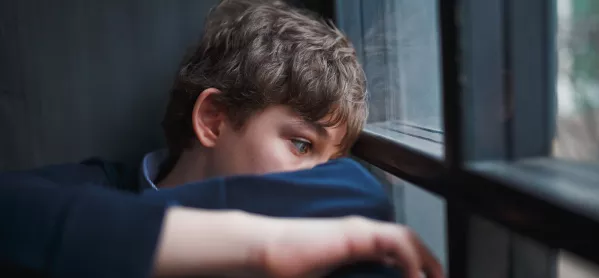The mental health charity Mind has warned that the use of isolation to punish pupils can potentially damage their mental health.
There have been increasing concerns about the controversial practice, with an investigation finding that hundreds of pupils had spent at least a week in isolation booths.
Now, Mind has called for the government to “urgently” give schools “proper guidance” about the use of seclusion and isolation.
Quick read: Hundreds of pupils spend a week in isolation booths
Research: Most secondaries use internal exclusion units
Debate: Should isolation rooms be banned?
Sophie Corlett, the charity’s director of external relations, told Tes: “The use of isolation as a punishment is inappropriate and likely to fall disproportionately on pupils with mental health problems, especially those displaying challenging behaviour.
“When done in the wrong way, segregating children can have the opposite of the intended effect, making them feel distressed, traumatised and potentially worsening their mental health, behaviour and ability to excel in school.”
She warned that a lack of “good guidance” about isolation and seclusion from the government had led to schools using a variety of approaches, “with some putting in place supportive units, and others taking a more punitive approach”.
In April, Labour MP Ellie Reeves raised the issue with education secretary Damian Hinds.
She told him schools in her London constituency used isolation units where pupils were “placed in single booths to work on their own, often for several days at a time, with no therapeutic intervention as a form of punishment for poor behaviour”.
She called for an end to the “draconian use of isolation units”.
The government has promised to publish revised guidance by the summer of 2020, but Ms Corlett called for swifter action.
She added: “The government must urgently provide proper guidance on the use of seclusion and isolation rooms. It has committed to reviewing guidance on behaviour and discipline by the summer of 2020, but this isn’t soon enough.”
A DfE spokesperson said: “A school’s behaviour policy should set out the behaviour expected of pupils, the sanctions that will be imposed for misbehaviour, and rewards for good behaviour.
"This should be communicated to all pupils, school staff and parents.
“To support schools, the government commissioned Tom Bennett to conduct an independent review of effective behaviour and recently announced a £10 million investment, through behaviour support networks, to enable schools to share best practice on behaviour and classroom management.
“In addition, as part of the government response to the Timpson Review of school exclusion, the department committed to publishing revised guidance by summer 2020 offering clearer, more consistent guidance on managing behaviour, the use of in-school units, and the sorts of circumstances where it may be appropriate to use exclusion.”




